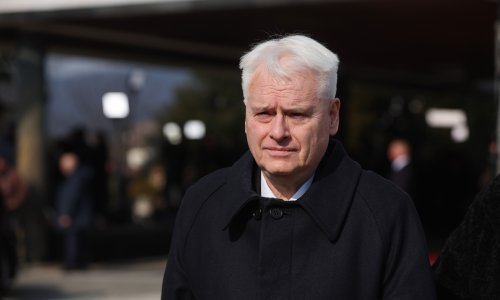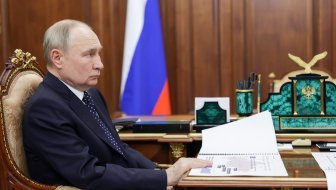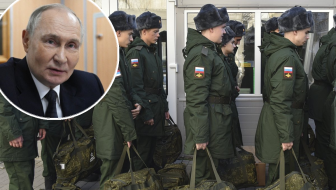Croatia will sign the Treaty of Accession to the European Union on Friday, and will become the bloc's full member on 1 July 2013. Until then, Croatia will have observer status in EU institutions, while its status of a candidate country will change to that of an acceding country.
During an hour-long ceremony, scheduled to start at 0930 hours in Brussels, the treaty will be signed by Croatian President Ivo Josipovic and Prime Minister Jadranka Kosor, and by the EU heads of state or government.
At the beginning of the ceremony, brief speeches will be delivered by European Council President Herman Van Rompuy, Polish Prime Minister Donald Tusk, whose country is holding the EU rotating presidency, European Commission President Jose Manuel Barroso, European Parliament President Jerzy Buzek as well as by Josipovic and Kosor.
After the signing ceremony, a photo session will be held and after that a regular summit of EU leaders will begin, with Croatia attending for the first time as an observer.
According to the document, Croatia becomes a full member of the EU on 1 July 2013, after Zagreb holds a referendum on the matter and EU member-states ratify the treaty.
Until 1 July 2013, Croatia will have observers in EU institutions. During this process, Croatia will be informed and consulted about new laws being adopted by the EU. Croatia can also contribute to the elaboration of laws and regulations but cannot vote on them until it becomes a full member.
Croatian ambassadors to third countries will be invited to meetings of their peers from the 27 EU member states.
With Croatia's admission to the European Union, the Union's Delegation in Zagreb will become the European Commission's office.
The Treaty of Accession is written in the 23 official languages of the EU and in Croatian, which will become the 24th official language of the Union on 1 July 2013.
Two documents are to be signed on Friday: the Treaty of Accession and the Final Act, a final political document of the intergovernmental conference which includes all that was agreed upon during the negotiating process.
After that, the treaty is to be ratified by all EU member states, and in Croatia its citizens will express their view on the matter at a referendum.
The treaty stipulates that the deadline for depositing ratification documents to the Italian government, the depositary of the agreement, is 30 June 2013, and admission is scheduled for 1 July 2013 when Croatia is to become the 28th member of the bloc.
The Treaty of Accession is the result of negotiations that lasted five years and eight months. They were opened on 3 October 2005 and finalised with the closing of the last policy chapters on 30 June 2011.
The negotiations were conducted on 33 chapters, or policy areas which a candidate country is required to adjust to EU standards. There are two more policy chapters -- Institutions (Policy Chapter No. 34) and Other Issues (No. 35) -- but they are not subject to negotiation.
Under Chapter No. 35, the European Commission is expected to carry out a monitoring process, as has been the case with other acceding countries, in order to see whether Croatia is fulfilling its obligations in the run-up to full membership.
In the spring of 2012, the EC will publish monitoring tables for three policy chapters -- Judiciary and Fundamental Rights, Competition Policy, and Justice, Freedom and Security. In the autumn, a comprehensive report on monitoring will be published regarding all policy chapters.
Chapter No. 34 defines the participation of Croatian representatives in EU institutions and agencies and designates Croatian as a new official language of the EU starting from Croatia's entry into the bloc.
Under Chapter No. 33 (Finance and Budgetary Provisions), Croatia can expect to have some 800 million euros at its disposal from the EU budget in the first six months of its membership. The funds cannot be drawn immediately but can be used over a longer period of time for the implementation of long-term projects.
In the first six months of its membership, Croatia is to pay EUR 267.7 million into the EU budget, which means that it can count on getting three euros for one euro it pays into the EU.





































